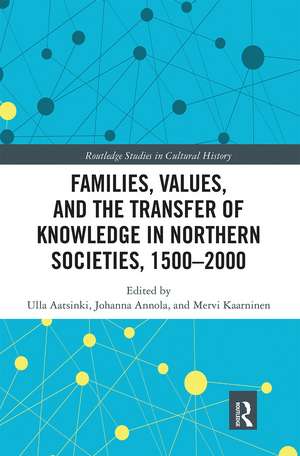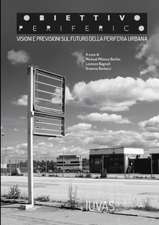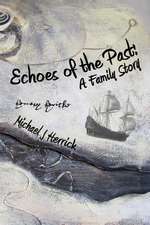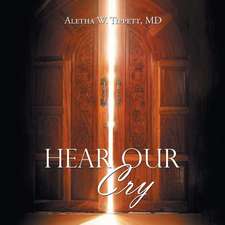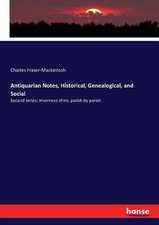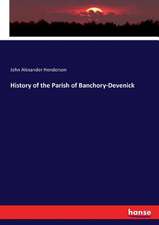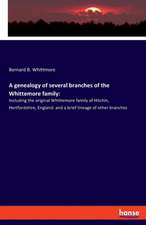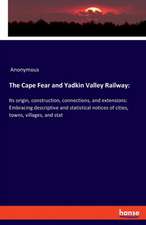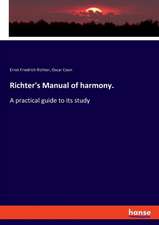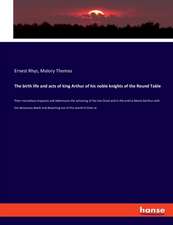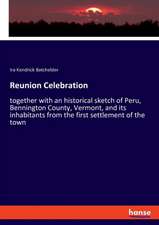Families, Values, and the Transfer of Knowledge in Northern Societies, 1500–2000: Routledge Studies in Cultural History
Editat de Ulla Aatsinki, Johanna Annola, Mervi Kaarninenen Limba Engleză Paperback – 30 sep 2020
| Toate formatele și edițiile | Preț | Express |
|---|---|---|
| Paperback (1) | 262.55 lei 6-8 săpt. | |
| Taylor & Francis – 30 sep 2020 | 262.55 lei 6-8 săpt. | |
| Hardback (1) | 1000.27 lei 6-8 săpt. | |
| Taylor & Francis – 10 dec 2018 | 1000.27 lei 6-8 săpt. |
Din seria Routledge Studies in Cultural History
-
 Preț: 326.49 lei
Preț: 326.49 lei -
 Preț: 311.41 lei
Preț: 311.41 lei -
 Preț: 665.25 lei
Preț: 665.25 lei -
 Preț: 311.41 lei
Preț: 311.41 lei -
 Preț: 311.41 lei
Preț: 311.41 lei -
 Preț: 325.96 lei
Preț: 325.96 lei -
 Preț: 326.78 lei
Preț: 326.78 lei -
 Preț: 313.60 lei
Preț: 313.60 lei -
 Preț: 315.70 lei
Preț: 315.70 lei -
 Preț: 310.45 lei
Preț: 310.45 lei - 9%
 Preț: 934.83 lei
Preț: 934.83 lei -
 Preț: 280.29 lei
Preț: 280.29 lei - 9%
 Preț: 276.16 lei
Preț: 276.16 lei -
 Preț: 341.39 lei
Preț: 341.39 lei -
 Preț: 356.84 lei
Preț: 356.84 lei - 30%
 Preț: 848.15 lei
Preț: 848.15 lei - 5%
 Preț: 1290.15 lei
Preț: 1290.15 lei - 30%
 Preț: 849.37 lei
Preț: 849.37 lei - 25%
 Preț: 858.29 lei
Preț: 858.29 lei - 26%
 Preț: 822.34 lei
Preț: 822.34 lei -
 Preț: 438.56 lei
Preț: 438.56 lei - 28%
 Preț: 819.91 lei
Preț: 819.91 lei - 18%
 Preț: 1109.99 lei
Preț: 1109.99 lei - 18%
 Preț: 1055.51 lei
Preț: 1055.51 lei - 28%
 Preț: 820.73 lei
Preț: 820.73 lei - 18%
 Preț: 1058.79 lei
Preț: 1058.79 lei - 18%
 Preț: 1068.18 lei
Preț: 1068.18 lei - 18%
 Preț: 1058.65 lei
Preț: 1058.65 lei - 18%
 Preț: 1057.89 lei
Preț: 1057.89 lei - 18%
 Preț: 1110.74 lei
Preț: 1110.74 lei -
 Preț: 487.02 lei
Preț: 487.02 lei -
 Preț: 412.37 lei
Preț: 412.37 lei - 18%
 Preț: 1115.51 lei
Preț: 1115.51 lei -
 Preț: 489.10 lei
Preț: 489.10 lei - 18%
 Preț: 1057.09 lei
Preț: 1057.09 lei -
 Preț: 281.63 lei
Preț: 281.63 lei -
 Preț: 431.57 lei
Preț: 431.57 lei - 18%
 Preț: 1110.61 lei
Preț: 1110.61 lei - 18%
 Preț: 1054.71 lei
Preț: 1054.71 lei -
 Preț: 397.66 lei
Preț: 397.66 lei -
 Preț: 440.69 lei
Preț: 440.69 lei - 18%
 Preț: 1060.19 lei
Preț: 1060.19 lei -
 Preț: 442.12 lei
Preț: 442.12 lei - 18%
 Preț: 1052.38 lei
Preț: 1052.38 lei
Preț: 262.55 lei
Preț vechi: 327.83 lei
-20% Nou
Puncte Express: 394
Preț estimativ în valută:
50.25€ • 52.26$ • 41.48£
50.25€ • 52.26$ • 41.48£
Carte tipărită la comandă
Livrare economică 14-28 aprilie
Preluare comenzi: 021 569.72.76
Specificații
ISBN-13: 9780367663810
ISBN-10: 0367663813
Pagini: 316
Dimensiuni: 152 x 229 mm
Greutate: 0.58 kg
Ediția:1
Editura: Taylor & Francis
Colecția Routledge
Seria Routledge Studies in Cultural History
Locul publicării:Oxford, United Kingdom
ISBN-10: 0367663813
Pagini: 316
Dimensiuni: 152 x 229 mm
Greutate: 0.58 kg
Ediția:1
Editura: Taylor & Francis
Colecția Routledge
Seria Routledge Studies in Cultural History
Locul publicării:Oxford, United Kingdom
Public țintă
Postgraduate and UndergraduateCuprins
Introduction: Approaches to Changing Values of Upbringing and Education in the Nordic Societies Part I: Raising a Family 1. How to Raise Good Children?: Disciplinary Correction in Early Modern Advice Books 2. When Parenting Fails: Religious Upbringing, Discipline, and Public Disapproval in Early Modern Finland 3. The Inheritance of a Good Life: How the Ideals of the Good Life Have Been Negotiated and Transmitted Between Generations in Finland and Canada Part II: Transferring Livelihood Values 4. German Families and Their Family Strategies: Marriage and Education in Eighteenth- and Nineteenth-Century Provincial Towns in the Northern Baltic 5. Knowledge Transfer Within Artisan Families in Early Nineteenth-Century Rural Finland 6. Culture, Context, and Family Networks: Values and Knowledge Transfers Among Eastern European Jews in the Nordic Countries, 1880–1940 7. Parents Know Better?: The Influence of Parents on Young People’s Transitions From Compulsory Schooling To Work And Further Education in Early 1960s Helsinki Part III: Focusing on Social Mobility 8. Rethinking Social Mobility: The Social Background and Career of Students from the "Vyborg Nation", 1833–1899 9. A Place in the Sun?: Education as a Middle-Class Family Value in Nineteenth-Century Finland 10. "Gifted Girls": The Values, Attitudes, and Experiences of the First Generation of Finnish Female Students in the Late Nineteenth and Early Twentieth Centuries Part IV: Dealing with Tensions 11. Transferring Political Heritage: Finnish-American Communities and Civic Education 12. Sami Schoolchildren and the Transfer of Knowledge and Culture in the Twentieth Century 13. Schooling the Muslim Family: The Danish School System, Foreign Workers, and Their Children from the 1970s to the Early 1990s
Notă biografică
Ulla Aatsinki is a researcher at the University of Tampere.
Johanna Annola is a research fellow at the Centre of Excellence in History of Experiences, University of Tampere.
Mervi Kaarninen is a senior lecturer in History at the University of Tampere.
Johanna Annola is a research fellow at the Centre of Excellence in History of Experiences, University of Tampere.
Mervi Kaarninen is a senior lecturer in History at the University of Tampere.
Descriere
This volume sheds light on Nordic families’ strategies and methods for transferring significant cultural heritage to the next generations over centuries. It explores why certain values, attitudes, knowledge, and patterns were selected while others were left behind, and how these decisions served and secured families’ well-being and values.
